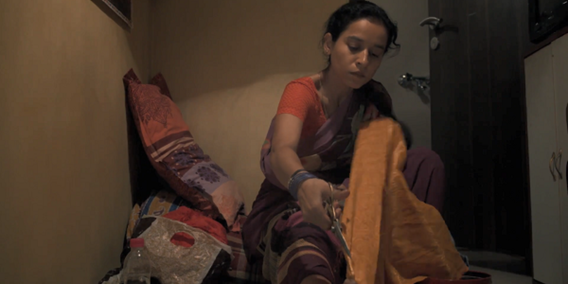The Danger of Being Just One Thing
The Day I Realized Being Good at My Job Was Destroying Me
If you follow The Thought Co. on Instagram and have seen our reels—hi, that's usually me. I'm Priyanka, a psychologist. For over a decade, that was my primary identity. It shaped me, defined me, and became the lens through which I viewed every action and inaction.
Today, I'm Priyanka—a psychologist, an entrepreneur, and a mother. Heavy sigh. It has taken time to embrace all these dimensions of myself. Truth be told, I didn't realize I defined myself through a single lens until this year. But let me tell you about the danger of defining yourself with just one word.
What Does It Mean to Become Only One Thing?
For years, I was a psychologist—and I wanted to be a good one. No, I wanted to be a damn good one. I lived and breathed that role. Despite knowing all the research-backed advice about self-care, my focus stayed fixed on consuming, defining, and shaping my entire existence around that single identity. And I suffered for it.
Who I was, what I did, and how I did it were all filtered through the role of being a psychologist. I wanted to be that invisible and wise person in every room—the person you feel most comfortable sharing with and never intimidated by. I put even the smallest ways I presented myself under a microscope. My wardrobe slowly changed from vibrant shades of pink and blue to neutral whites, beige, and black. My long, well-manicured nails that often sported Barbie pink became short (still well-manicured), natural—and maybe if I was feeling indulgent, I would slap on a neutral shade (the exact shade is OPI Bubble Bath™), something that would definitely not grab your eye. I wanted nothing about me to spark conversation or curiosity. My focus was to build a profile of what a good psychologist is, inside and out—and I could not afford distractions for anyone.
Being a good psychologist became the epicenter of my existence. Everything flowed from there, and everything that I felt was not connected to it faded away. My sense of who I am became deeply intertwined with one single role—being a psychologist. Nothing else mattered. We psychologists have a term for this—we call it identity fusion.
Now, this may feel noble, even purposeful, but over time, it erodes the flexibility of the many shades that make me. Just like my nails that used to sport many vibrant shades, I became excessively rigid to one shade—almost invisible.
When Did I Become So Small?
Here's the thing—psychologists are human too. We may know concepts, but we are just as guilty of the slow burn from theoretical knowledge to self-awareness to action.
Over the years, I isolated myself. My world narrowed. I became one-track in my thinking, my conversations, and even my content consumption. I ignored every other part of who I was—and who I could be. One of the biggest losses was my relationship with my body.
If you've been following our content, you might have noticed my face and body have changed. I've lost weight. It's hard to miss because these days, it's the first thing everyone comments on. Why are people I've known for years suddenly commenting on my weight loss? Because I'm stepping out to meet them. I'm meeting people other than my clients and colleagues. I'm doing the mahjong classes, the midnight cold chocolate runs to Benne, the mindless drives on the coastal road. And oh my God—it feels good to slowly come back to me.
Yes, when the weight is the first thing people notice, it's awkward because it brings into focus how I've allowed myself to be invisible for so long. But it feels good to be noticed. It feels good to step out. It feels good to exist again. The weight loss happened gradually, but it shocked most people because I had been invisible for so long.
Why Did I Let Myself Disappear?
Now, this is layered, as most things I write about are, and I feel the need to clarify this because everyone who reads this has their own context, and I want to over-explain mine. Losing weight has been a byproduct of exercise and healthy eating. Why did I choose to make these changes now? It's personal—I wanted to show up in better ways for people who mattered to me. I didn't want to be the irritable mother at bedtime because she's exhausted and her child is fighting sleep. I didn't want to be the groggy mother in the morning. I wanted to show up better for those around me. But to show up in better ways for people who mattered to me, I needed to show up in better ways for myself. My goal was to increase my energy levels, to be more balanced with my mood, my tolerance.
This slowly grew into building a connection with my body and myself. The weight melted away when my focus shifted to me. Walking down this path may have been motivated by others, but it brought me back to how I was showing up for myself.
I had convinced myself of a fallacy: would you really want to see your psychologist at a party? So I stayed home. My world shrank to my house, my room, and my desk (not my bed—because every waking moment had to be devoted to the productive work of being a psychologist). I allowed myself to be only one thing—a psychologist.
Looking back, I can see the cognitive dissonance—that painful gap between what I knew professionally and what I lived personally. I could talk about balance and rest for others, yet I was quietly burning out. Why did I do this? Many reasons, but the one that weighed the most was that I thought about the client first. Would they be comfortable? Would they want to continue therapy with me? Would my socializing come in the way of building a thriving practice? I wanted to be a good psychologist with a thriving practice—where clients felt most comfortable talking to me.
Honestly, supervision helped—it brought into focus why I am a psychologist. Something my younger self is guilty of, and I am certain many young psychologists are guilty of, is that we need to remember: we do not know for our clients, and we need to trust them in the process.
What Was I Really Doing to Myself?
Even though I learned this many years ago, life has grown. My life was stretched, structured, and dedicated to work, managing the house, and, of course, being a mother. With those priorities, self-care naturally took a back seat. It wasn't ignored—because hey, I'm a psychologist; I should know better about movement, sleep, and nutrition. So I did all the "right" things. But here's the thing: I did them like a checklist. I showed up for movement while sleep-deprived, half-present, cutting workouts short because my child was nearby. I slept, but my body never truly rested. I ate healthy, but also ate unhealthy junk every day. It was performative wellness—care done to maintain the illusion of balance rather than to actually feel whole.
Eventually, I cracked. I was angry all the time. Irritable. Unhappy. I blamed it on the mental load of motherhood, on postpartum transitions, on everything external—and while all of that was true, it wasn't the full truth. The truth was that I had ignored myself. And this is where I bring up performative wellness again—I did the checklist, but it wasn't my checklist. It was a list of things I thought would work, but I did not pause, reflect, reassess, and actually understand whether it was helping or just being performative.
So What Changed?
Then one day, I got fed up. There was no dramatic breaking point, no cinematic collapse—just quiet exhaustion. I was tired of feeling stuck. So I went to the gym. Alone. No one I knew. Just me and the weights. And something shifted. There was a physical release that facilitated clarity of thought and then a burst of letting go.
Lifting became a release—a way to express all the aggression I had stored from constantly being "on." I liked it. For the first time in years, I was doing something just for me. Not to perform, not to fix, not to achieve—just to be. Initially, I'd only go after everyone else's needs were taken care of—after work, after bedtime routines, after the house was quiet. I still feel guilty sometimes when I prioritize it, but I remind myself: how can I play with my child if I'm always tired or too weak to keep up?
That's when I realized—this wasn't selfishness; it was embodiment. A reconnection with my physical self. I started noticing how my body felt after sleep, how I wanted to move, how I looked in the mirror, and what I wanted to wear that day. Small, ordinary moments, but deeply human. This physical shift mirrored a mental one. My energy lifted, my happiness returned, and yes, the weight came off—but more importantly, the heaviness inside me eased.
What Does It Mean to Be a Whole Person?
It wasn't just the gym that helped me heal—it was my work, ironically, that brought me back to myself. Therapy has always been about congruence—helping others align who they are inside with how they show up in the world. And I couldn't do that work authentically while living split from my own truth. Being a psychologist isn't about perfection; it's about congruence. It's not about the thriving practice or being a good psychologist—it's about being an authentic person who is an authentic psychologist, and that facilitates authentic work. This translates into having a life that has space for many dimensions.
Genuine self-care isn't about ticking boxes. It's about investing in all the dimensions of you—the professional, the parent, the friend, the learner, the human who needs quiet and play. We can't ignore that our body is us. It's not separate from our mind, our ambition, or our compassion. It's the vessel through which all of it exists. When we treat care like a checklist, we miss the point.
I used to think that loving my work so much that it "didn't feel like work" was a sign of purpose. Now I see it as a warning. That kind of devotion sounds beautiful, but it's sneaky. It makes you forget you're human. It blurs the boundary between passion and depletion.
Work-life balance isn't about counting hours—it's about integration. It's about letting your identities coexist without competing. It's about remembering that you can love your work deeply and still need rest, play, and pleasure.
Because when you love what you do so much that it consumes you, you lose sight of the one relationship that sustains everything else—the relationship with yourself. The relationship that is made up of many intertwined identities and shades of personalities that all encompass you. It's stretching yourself a bit routinely to genuinely feel the connection with yourself as you engage in your self-care. We are all guilty of ignoring ourselves at some point. But when you finally stop, when you start to see yourself again—in the mirror, in movement, in laughter—you realize that caring for yourself isn't indulgence. It's a responsibility.
You are not one thing. You are many. And every part of you deserves to be nurtured.
Therapy That Helps You Reconnect With Yourself
If you’ve ever felt like you’ve become “just one thing,” therapy can help you rediscover your many selves. Our psychologists at The Thought Co. create a safe space to explore who you are beyond your roles—at work, at home, and with yourself.








